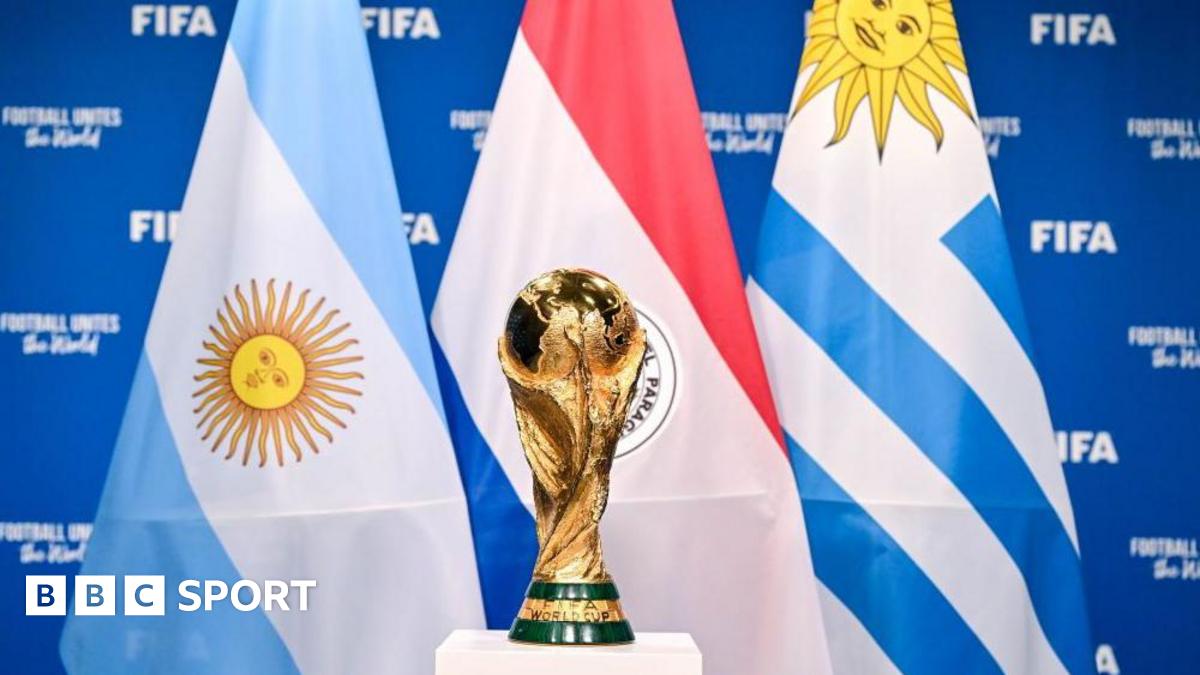Expanded 2030 World Cup: South America's Bold 64-Team Proposal Shakes Up FIFA
The football world is abuzz with a groundbreaking proposal: a significantly expanded 2030 FIFA World Cup featuring a staggering 64 teams. This ambitious plan, spearheaded by a joint South American bid, promises a revolution in the world's most prestigious football tournament. But will FIFA bite? Let's delve into the details and analyze the potential impact of this monumental shift.
A Continental Dream: South America's Vision
The proposal, backed by the South American Football Confederation (CONMEBOL), envisions a tournament vastly different from the familiar 32-team format. Expanding to 64 teams would necessitate a complete overhaul of the qualifying process and tournament structure. This bold move is driven by several factors:
- Increased Participation: Giving more nations a chance to participate in the World Cup is a key driver. This resonates deeply with smaller footballing nations, who often face an uphill battle to qualify under the current system.
- Economic Benefits: A larger tournament translates to more matches, increased broadcasting revenue, and significant economic boosts for the host nations. South America, with its passionate fanbase, stands to gain enormously.
- Global Reach: Expanding the World Cup's reach could further solidify football's position as the world's most popular sport, attracting new fans and sponsors globally.
The Logistics and Challenges: A Herculean Task
However, the 64-team proposal presents considerable logistical challenges. A longer tournament duration, increased stadium requirements, and the complexities of a revised qualifying system demand meticulous planning and significant investment. Key questions remain:
- Tournament Length: A 64-team tournament would inevitably require a significantly longer timeframe, potentially impacting player schedules and club competitions.
- Qualifying Complexity: Determining a fair and efficient qualifying system for 64 teams is a major hurdle. Balancing continental representation and ensuring competitive balance will be crucial.
- Infrastructure Needs: Hosting a tournament of this scale demands substantial infrastructure investment, including numerous high-quality stadiums, accommodation, and transportation systems.
FIFA's Response and the Road Ahead
FIFA's reaction to the South American proposal remains to be seen. While the governing body has shown a willingness to consider expansion in the past, the scale of this proposal is unprecedented. A thorough evaluation of feasibility, financial implications, and potential impacts on the wider football calendar is essential before any decision can be made.
The expanded 2030 World Cup proposal represents a significant gamble, but one with potentially enormous rewards. It’s a gamble that could redefine international football as we know it, dramatically increasing participation and showcasing the global appeal of the beautiful game. The coming months will be crucial in determining whether this ambitious vision becomes a reality.
Further Reading:
- [Link to a FIFA article on World Cup expansion (if available)]
- [Link to a CONMEBOL statement on the 64-team proposal (if available)]
Call to Action: What are your thoughts on South America's 64-team World Cup proposal? Share your opinions in the comments below! Do you believe it's feasible, and would it improve the World Cup experience?

